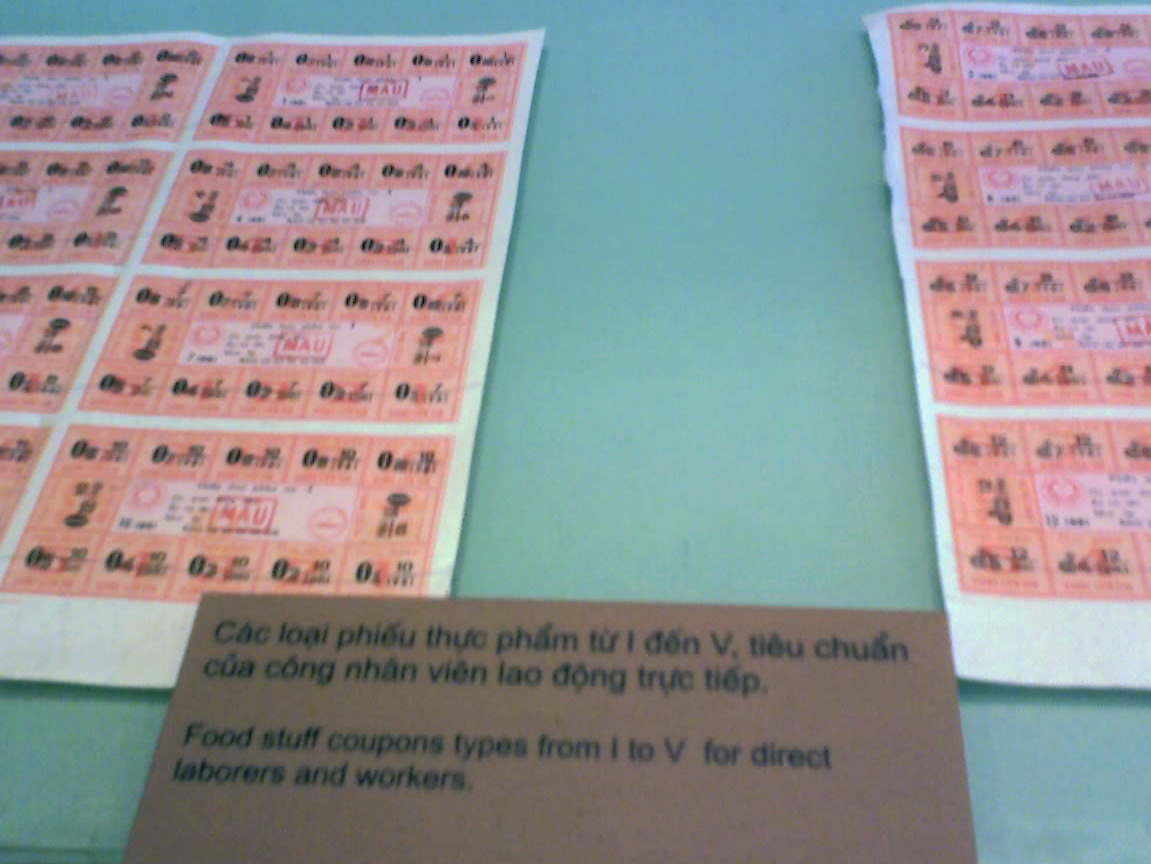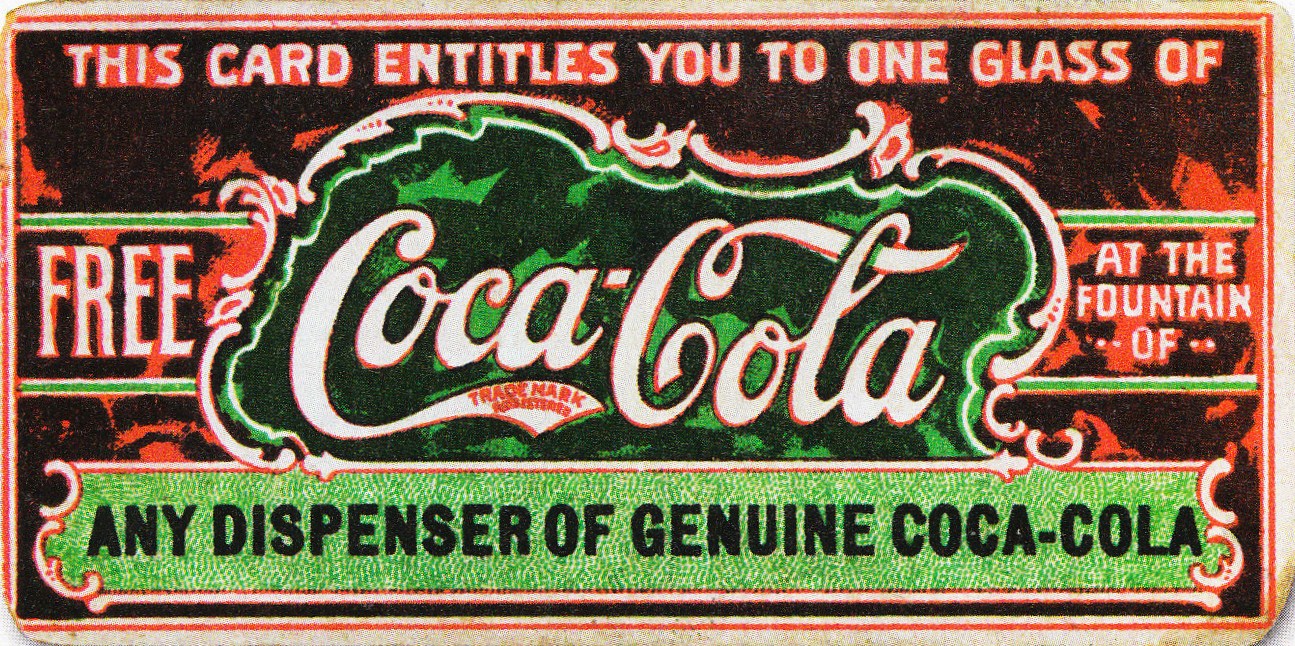coupon on:
[Wikipedia]
[Google]
[Amazon]
 In marketing, a coupon is a ticket or document that can be redeemed for a financial discount or rebate when purchasing a
In marketing, a coupon is a ticket or document that can be redeemed for a financial discount or rebate when purchasing a

 In marketing, a coupon is a ticket or document that can be redeemed for a financial discount or rebate when purchasing a
In marketing, a coupon is a ticket or document that can be redeemed for a financial discount or rebate when purchasing a product
Product may refer to:
Business
* Product (business), an item that serves as a solution to a specific consumer problem.
* Product (project management), a deliverable or set of deliverables that contribute to a business solution
Mathematics
* Produ ...
.
Customarily, coupons are issued by manufacturers of consumer packaged goods
or by retailers, to be used in retail stores as a part of sales promotion
Sales promotion is one of the elements of the promotional mix. The primary elements in the promotional mix are advertising, personal selling, direct marketing and publicity/public relations. Sales promotion uses both media and non-media marketing ...
s. They are often widely distributed through mail, coupon envelopes, magazines, newspapers, the Internet (social media, email newsletter), directly from the retailer, and mobile devices such as cell phones.
''The New York Times'' reported "more than 900 manufacturers' coupons were distributed" per household, and that "the United States Department of Agriculture
The United States Department of Agriculture (USDA) is the United States federal executive departments, federal executive department responsible for developing and executing federal laws related to farming, forestry, rural economic development, ...
estimates that four families in five use coupons. "Only about 4 percent" of coupons received were redeemed. Coupons can be targeted selectively to regional markets in which price competition is great.
Most coupons have an expiration date, although American military commissaries overseas honor manufacturers' coupons for up to six months past the expiration date.
Pronunciation
The word is of French origin, pronounced . In Britain, the United States, and Canada it is pronounced . A common alternate American pronunciation is .History
Origin
During the great famine of 18 AH (638 CE),Umar
ʿUmar ibn al-Khaṭṭāb ( ar, عمر بن الخطاب, also spelled Omar, ) was the second Rashidun caliph, ruling from August 634 until his assassination in 644. He succeeded Abu Bakr () as the second caliph of the Rashidun Caliphate o ...
, the second ruler of the Islamic Caliphate, introduced several reforms such as the introduction of food rationing using coupons, which were given to those in need and could be exchanged for wheat and flour.

Coca-Cola
Coca-Cola, or Coke, is a carbonated soft drink manufactured by the Coca-Cola Company. Originally marketed as a temperance drink and intended as a patent medicine, it was invented in the late 19th century by John Stith Pemberton in Atlanta ...
's 1888-issued "free glass of" is the earliest documented coupon. Coupons were mailed to potential customers and placed in magazines. It is estimated that between 1894 and 1913 one in nine Americans had received a free Coca-Cola, for a total of 8,500,000 free drinks. By 1895 Coke was served in every state in the United States.
In 1929 Betty Crocker began a loyalty points program and began issuing coupons that could be used to redeem for premiums like free flatware. In 1937 the coupons were printed on the outside of packages. The loyalty program ended in 2006, one of the longest loyalty programs.Fred Reichheld
Fred may refer to:
People
* Fred (name), including a list of people and characters with the name
Mononym
* Fred (cartoonist) (1931–2013), pen name of Fred Othon Aristidès, French
* Fred (footballer, born 1949) (1949–2022), Frederico Rodr ...
(1996) ''The Loyalty Effect'', Harvard Business School Press, Boston, 1996.
In Australia consumers first came in contact with couponing when a company called Shopa Docket
Shopa Docket is an Australian coupon company, founded in 1986, based in Brisbane, Australia. It is a provider of coupons that appear on the back of receipts in supermarkets and variety stores and outlets including Woolworths Supermarkets, Target ...
promoted offers and discounts on the back of shopping receipts in 1986.
Types and uses
Coupons offer different types of values, such as discounts, free shipping, buy-one get-one, trade-in for redemption, first-time customer coupons, free trial offer, launch offers, festival offers, and free giveaways. Similarly, there are varied uses of coupons which include: to incentivize a purchase, reduce a price, provide a free sample, or to aid marketers in understanding the demographics of their customer.Function
Coupons can be used to research the price sensitivity of different groups of buyers (by sending out coupons with different dollar values to different groups). Time, location and sizes (e.g. five pound vs. 20 pound bag) affect prices; coupons are part of themarketing mix
The term "marketing mix" is a foundation model for businesses, historically centered around product, price, place, and promotion (also known as the "4 Ps"). The marketing mix has been defined as the "set of marketing tools that the firm uses to ...
. So is knowing about the customer.
Grocery coupons
Grocery coupons come in two major types: * store coupons: issued by the store itself. Some stores will also accept store coupons issued by competitors. * Coupons issued by the manufacturer of a product may be used at any coupon-accepting store that carries that product. Part of their function is to advertise their offerings and attract new customers. Some grocery stores regularly double or even triple the value of coupons to bring customers into their stores. Periodic special events double or triple coupon values on certain days or weeks.Conveyance
Coupons exist in more than one form, and are acquired by customers in a variety of ways.Paper
Historically, verifying the discount offered has been via presenting coupons clipped from newspapers or received in the mail. Some retailers and companies use verification methods such as uniquebarcode
A barcode or bar code is a method of representing data in a visual, machine-readable form. Initially, barcodes represented data by varying the widths, spacings and sizes of parallel lines. These barcodes, now commonly referred to as linear or o ...
s, coupon ID numbers, holographic seals, and watermarked paper as protection from unauthorized copying or use. Other than newspapers, there are also coupon book publishers and retailers who compile vouchers and coupons into books, either for sale or free.
Electronic
By the mid-1990s, "couponing had also moved to the internet." An early term was . Later on the term "downloadable coupons" came into use. Options include: * Internet coupons:Online retailers
Online shopping is a form of electronic commerce which allows consumers to directly buy goods or services from a seller over the Internet using a web browser or a mobile app. Consumers find a product of interest by visiting the website of the ...
often refer to these as "coupon codes", "promotional codes", "promotion codes", "discount codes", "keycodes", "promo codes", "surplus codes", "portable codes", "shopping codes", "voucher codes", "reward codes", "discount vouchers", "referral codes" or "source codes".
These are typed in before the sale is finalized. Marketers can use different codes for different channels or groups in order to differentiate response rates. Free shipping and cashback are additional inducements.
* Mobile: Smartphone based, these are often distributed via WAP Push
Wireless Application Protocol (WAP) is a technical standard for accessing information over a mobile wireless network. A WAP browser is a web browser for mobile devices such as mobile phones that use the protocol. Introduced in 1999, WAP achieve ...
over SMS or MMS MMS may refer to:
Science and technology Network communication protocols
* Multimedia Messaging Service for mobile phones
* Microsoft Media Server, a content-streaming protocol (mms://)
* Manufacturing Message Specification for real time proces ...
, and presented at the store or online. These also have advertising benefits even after their expiration date.Banerjee, Sy, and Yancey Scott (2010), "Enhancing Mobile Coupon Redemption in Fast Food Campaigns", ''Journal of Research in Interactive Marketing'', Vol. 4 Iss: 2, pp.97 - 110
* Apps: Related to classic coupons are loyalty cards; these have increasingly been superseded by mobile app
A mobile application or app is a computer program or software application designed to run on a mobile device such as a phone, tablet, or watch. Mobile applications often stand in contrast to desktop applications which are designed to run on d ...
s.
Taxation
Depending on thejurisdiction
Jurisdiction (from Latin 'law' + 'declaration') is the legal term for the legal authority granted to a legal entity to enact justice. In federations like the United States, areas of jurisdiction apply to local, state, and federal levels.
Jur ...
, coupons may or may not reduce the sales tax
A sales tax is a tax paid to a governing body for the sales of certain goods and services. Usually laws allow the seller to collect funds for the tax from the consumer at the point of purchase. When a tax on goods or services is paid to a govern ...
which must be paid by the consumer. The most consumer-friendly tax situation taxes the actual price paid, including when the store does double and triple coupon reductions.
The above applies when the retailer is the source of the coupon, since the product is offered at the post-coupon price. In jurisdictions seeking to tax more, if the coupon is issued by the manufacturer, the original price is still paid but some of the price is covered by the manufacturer instead of the consumer and the full price remains taxable.
Trading
Coupon manufacturers may or may not place restrictions on coupons limiting their transferability to ensure the coupons stay within the targeted market. Since such restrictions are not universal and are difficult and/or costly to enforce, limited coupon trading is tolerated in the industry. Organized coupon exchange clubs are commonly found in regions where coupons are distributed. Often coupons are available for purchase at some online sites, but since most coupons are not allowed to be sold, the fee is considered to be for the time and effort put into cutting out the coupons. Some types of coupons may be sold. ''The New York Times'' not only said "the traffic is legal" regarding selling airline discount coupons, but wrote "check the commercial notices column in ''The New York Times'' or the classified advertising section under 'Miscellaneous') in ''The Wall Street Journal''. During war time or economic hardships, trading or selling ration coupons is an economic crime.See also
*Canadian Tire money
Canadian Tire money, officially Canadian Tire 'money' or CTM, is a loyalty program operated by the Canadian retail chain Canadian Tire Corporation (CTC). It consists of both paper coupons introduced in 1958 and used in Canadian Tire stores as s ...
*Coupon (bond)
In finance, a coupon is the interest payment received by a bondholder from the date of issuance until the date of maturity of a bond.
Coupons are normally described in terms of the "coupon rate", which is calculated by adding the sum of coupons p ...
*Drug coupon
A drug coupon is a coupon intended to help consumers save money on pharmaceutical drugs. They are offered by drug companies or distributed to consumers via doctors and pharmacists, and most can be obtained online. There are drug coupons for ...
*''Extreme Couponing
''Extreme Couponing'' (renamed ''Extreme Couponing: All-Stars'' for its third season) is an American reality television entertainment series produced by Sharp Entertainment and aired on cable network TLC in the United States and Canada.
History ...
''
*Trading stamp
Trading stamps are small paper stamps given to customers by merchants in loyalty programs that predate the modern loyalty card. Like the similarly-issued retailer coupons, these stamps only had a minimal cash value of a few mils (thousandths of a ...
* Split payment
References
External links
* * {{Paper products Sales promotion Paper products